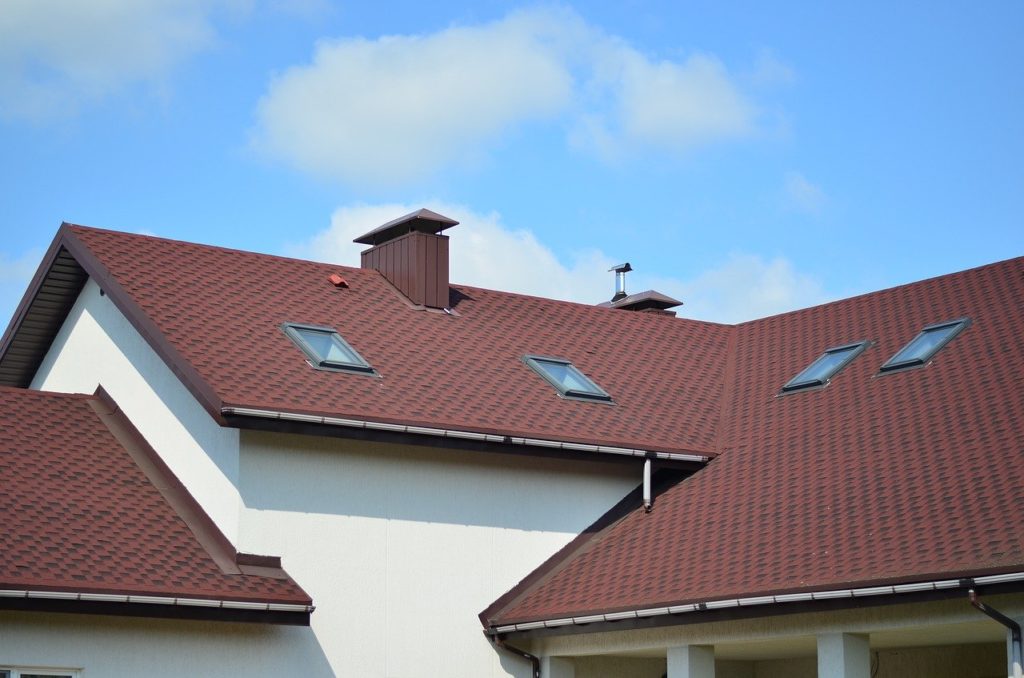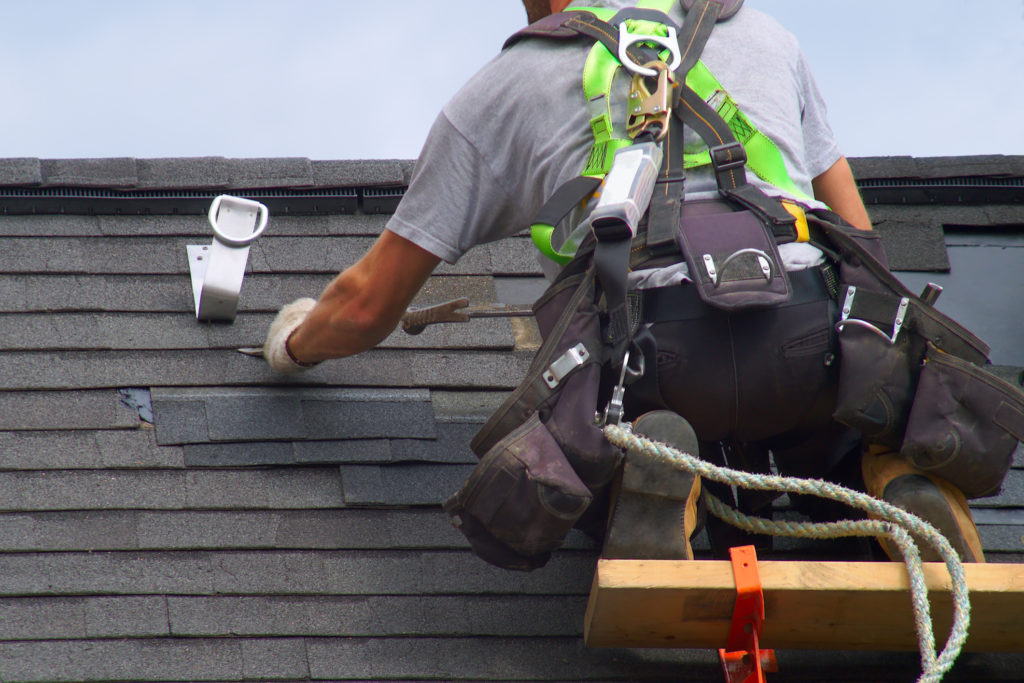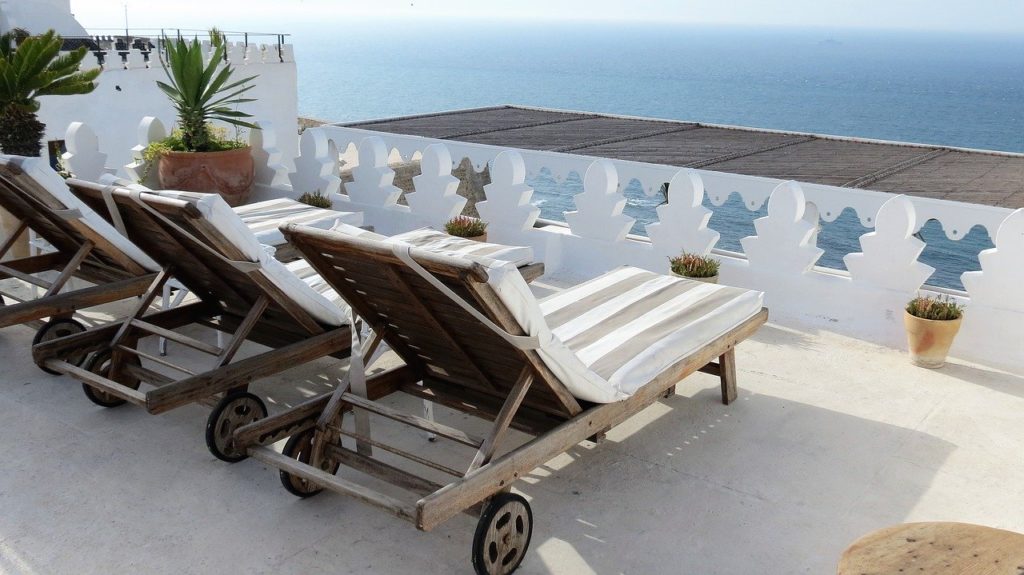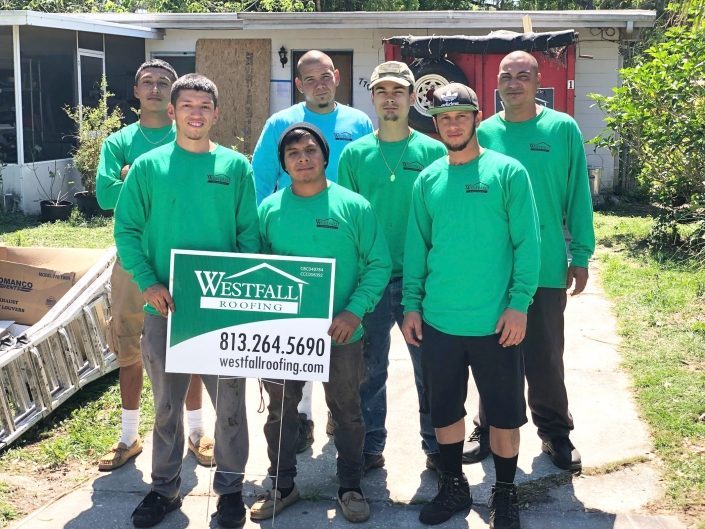Tile roofing offers one of the most beautiful and popular options for property owners looking for the longest life out of their roof. When installed properly, some tile roofs can last 100 years or longer. Tile roofs are built to last a lifetime, and they are non-combustible, meaning greater fire safety. They’re also weather resistant and environmentally friendly. In this blog we will look at many of the different styles, materials, and designs for tile roofing.
Types of Roof Tiles
Tile roofs give you a change from the basic asphalt roof and can pair with many modern home styles. The first consideration is what type of tile you want for your roof. Each has its own advantages and color options. With any tile roof, you will need to consider the weight of clay tiles and be sure your home’s current roofing frame and structure can handle a heavier roofing material.
Clay
Clay roof tiles offer excellent moldability, color options, and color retention. While traditional clay tile roofs were natural orange or red in color, today’s clay roof tiles come in virtually any color and in dozens of shapes. They are popular on modern homes looking for a Spanish villa style aesthetic. Clay tiles are relatively affordable compared to other tile roofing options, easy to maintain, and durable. They cost more to install than other more common roofing types such as asphalt shingles, but the investment can pay off if longer life. Common styles of clay tiles include terracotta, Spanish styles, mission style, and French styles.
Concrete
Concrete tile roofs are more affordable than clay roofing and boast a comparable lifespan. They are also lighter weight than clay roof tiles, which can make installation easier and your home safer. Concrete roof tiles feature an interlocking installation method that makes installation quicker and less expensive. They lend themselves to an ultra-modern or industrial design style.
Solar
Solar roofing tiles are still a relatively new roof installation choice that more homeowners are considering. Solar roof tiles have the look of asphalt tiles. They come with a higher price tag but are comparable to asphalt roofs as far as weather protection and durability. However, like a traditional solar panel system, these tiles have the ability to produce energy for your home directly from the sun. A solar roofing tile can produce anywhere from 13 to 63 watts of energy depending on how many tiles you have installed.
Slate
Traditional, natural slate roof tiles are manufactured from rock. They are popular due to their natural appearance, durability, and longevity. Slate roof tiles come in a variety of color and texture options. Colors vary depending on the mineral content. Due to the popularity of the look of slate, many clay or synthetic roof tile options mimic its shape and texture. These roofing tiles are a beautiful, durable, and eco-friendly roof installation option. Slate roofs can be expensive, with high labor costs to install due to their weight and installation process. But, since slate roofing is made of stone, it is impervious to weather, sun, heat, and cold so you can expect a slate roof to last up to 150 years.
Roof Tile Shapes
Spanish Tiles
Spanish roof tiles are a form of “barrel roof tile” that has a wavy “S” shape. When it comes to tile roofing, these roof tiles create one of the most commonly recognized tile roof designs.
Mission Tiles
Mission roof tiles are sometimes called “true barrel tiles.”A mission tile roof system includes separate barrels installed to form alternating concave and convex shapes on the roof.
Flat Tiles
Flat roof tiles can include interlocking edges or not. Shingle tile does not interlock. These roofing systems offer the ability to get very creative.
Interlocking Tiles
Interlocking roof tiles typically include a channel on one or two sides of the tile. This channel interlocks with a lip formed into tiles next to and above it to create a strong connection. Interlocking roof tiles help with installation efficiencies and create beautiful lines on buildings.
French Tiles
French roof tiles (sometimes called Marseille tiles) offer a low profile and robust interlocking design. This roof tile design includes two flutes on the surface of the tile.
Scalloped Tiles
Scalloped roof tiles can create a very unique look with their curved bottom edge. When installed, they give the roof a fish scale appearance





